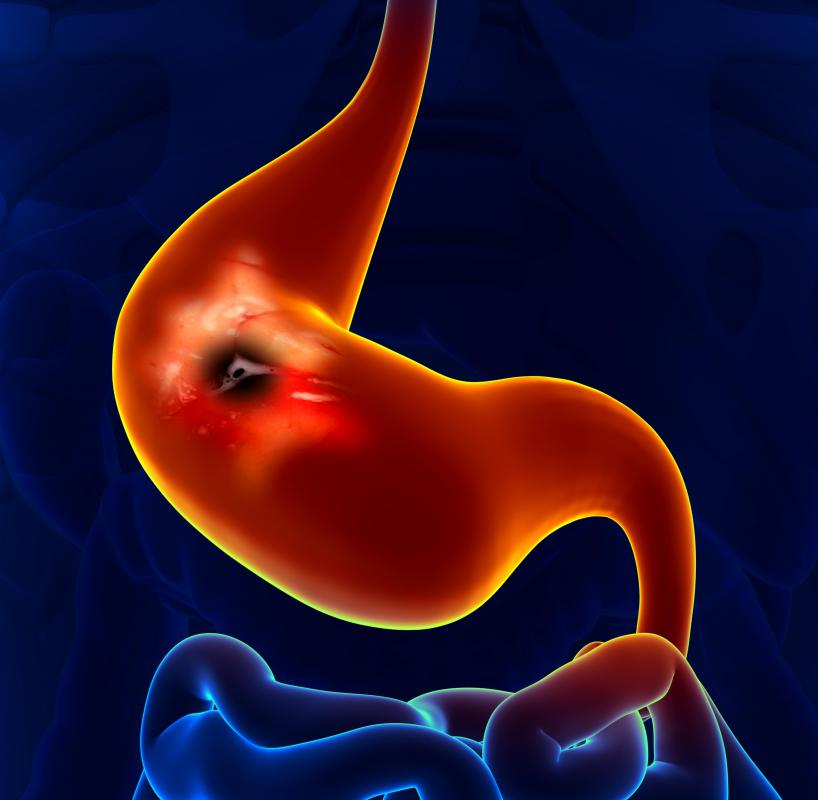At WiseGEEK, we're committed to delivering accurate, trustworthy information. Our expert-authored content is rigorously fact-checked and sourced from credible authorities. Discover how we uphold the highest standards in providing you with reliable knowledge.
What are the Risks of Gastritis?
Gastritis is an umbrella term used to describe a number of medical conditions characterized by an inflamed stomach lining. Additional symptoms associated include vomiting, nausea, stomach pain, weight loss, abdominal bleeding, blood in the stool or vomit, a feeling of fullness or a burning sensation in the stomach, and excessive belching. Gastritis is most commonly caused by eating spicy foods or consuming too much alcohol. This is because the stomach lining, while strong, becomes irritated and inflamed when it is unable to deal with acids and irritants quickly enough.
Gastritis may also be caused by stress or by using nonsteroidal anti-inflammatory drugs (NSAIDs) or cocaine for a long period of time. In addition, chemotherapy and major surgery can lead to gastritis. Infections, particularly salmonella, E. coli, and Helicobacter pylori, can cause gastritis as well. Also, traumatic burns, injuries, and diseases such as autoimmune disorders, megaloblastic anemia, and chronic bile reflux can cause gastritis.

It is important for a person experiencing gastritis symptoms for longer than a week to seek medical attention. If gastritis is not treated, it can cause stomach ulcer and bleeding. For individuals with chronic gastritis that goes untreated, stomach cancer may result. This is particularly true if the stomach lining has become significantly thinned or if the lining cells have undergone change.

A person with gastritis symptoms may undergo a variety of tests to confirm the disorder. One common gastritis test is a gastroscopy. A gastroscopy involves inserting a camera on a thin tube into the stomach through the patient’s mouth. The doctor can than examine the stomach lining and may also biopsy a small piece for testing.
A blood test or a stool culture may also be performed to test for gastritis. These tests can identify anemia or other conditions that can lead to gastritis. In this way, the doctor can search for possible underlying causes in order to develop an appropriate treatment plan.

Other considerations when determining a treatment plan include the age of the patient, the patient’s overall health, and the amount of damage that has been caused by the gastritis. Antacids are the most common form of treatment, though the patient may also be advised to avoid certain foods and to quit smoking.
AS FEATURED ON:
AS FEATURED ON:

















Discussion Comments
I was diagnosed with gastritis about seven years ago after a gastroscopy. I currently have three or four acute attacks each week which can last for hours. The pain is unbelievable and nothing helps. Between attacks I have pain just below my breast bone permanently.
I take double Lanzoprazole daily, take buscopan up to 30 each day and go through bottles of antacid. I am losing weight and feel ill all the time. I can't eat more than a few mouthfuls of food at a time. I feel sick most of the time. I am now really thin.
My doctors aren't interested. (I have Ehlers Danlos type 3).
Post your comments